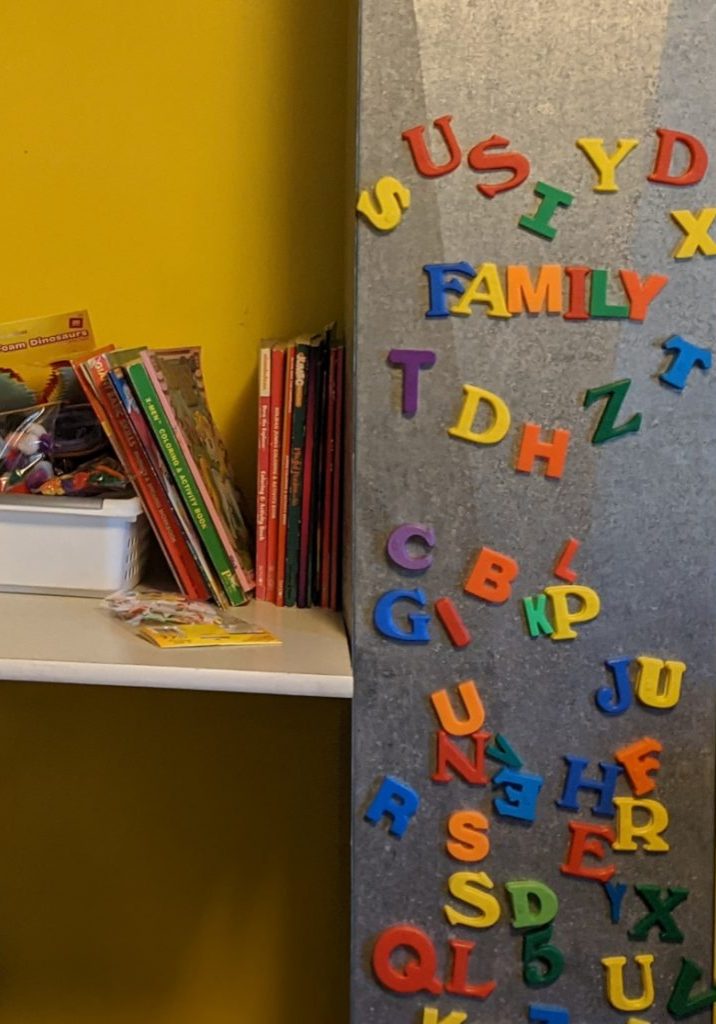For Attorneys & Professionals
VISIT SUPERVISION 101
Why Advocate for Ordered Supervision?
This arrangement is often put into effect when a family court judge questions the fitness of a parent, frequently because of issues with drug or alcohol use or domestic abuse. No parent wants to find themselves in a supervised visitation arrangement, but at heart, its aim is to keep the parent-child attachment intact, to prevent feelings of abandonment, and to give fathers and mothers a chance to spend time and bond with their children.
During a supervised visit, parents spend time with their child while also laying the groundwork for unsupervised visits in the future


Why at Family House?
Supervised visitation allows parents in high conflict or high-risk situations access to their children in a safe and supervised environment.
- Custodial and non-custodial parents do not interact. Each party utilizes separate entrances, parking area and Family House provides the scheduling for each party.
- Family House provides the non-custodial parent access to the child only when supervised by trained professional staff.
- Family House coordinates and tracks the calls and responses. This eliminates clients scheduling with each other and alleviates tension, anxiety, trauma and confusion.
- Family House is a safe neutral environment. We have experience and are trained to work with difficult situations in the best interest of the child.
The judge may order parenting based on the facts of the case. Other times, maybe a parent has concerns that a child is at risk when in the care of the other parent and may ask for supervision.
Supervised visitation is used to protect children from potentially dangerous situations while allowing parental access and providing support for the parent child relationship.
Supervised visitation is typically ordered when there is evidence that the child may be adversely affected by contact with a parent, or if it is ruled that contact would not be in the child's best interest.
Such decisions should be made in the BEST INTEREST OF THE CHILD.
Family House Visit Supervisors
Our Visit Supervisors are trained professionals who have a bachelor’s degree or are working towards completion of their bachelor’s degree. We also have interns from local colleges and universities who are under the supervision of the Program Coordinator or Director. We also work with an PHD, MSW, LCSW to provide counseling, therapeutic supervised visits and/or supervision of master’s level students.
It’s important that the time a parent spends with their child during supervised visitation is not only fun for them but that both engaged and active. If the visit is not going smooth, visit supervisors offer guidance and/or advice.
Visit supervisors oversee the entire interaction and visit. Visit reports are written for every visit and may be provided for the attorney, GAL, CASA, courts, upon request.
The Family House has been in operation since 1981. We are a member of the Supervised Visitation Network.
What options might there be for my client?
Usually, visitation arrangements are court ordered in one or more of the following ways or as a progression:
- Unsupervised visitation
The most common visitation, that allows the non-custodial parent to spend his or her scheduled time with the child without being supervised by a neutral third party. - Neutral Custody Exchanges or Transfers
(Parenting Time Guidelines usually apply). These exchanges/transfers take place under supervision at the Family House. This is extremely important in domestic violence situations. Sometimes a child is safe with either parent, but the parents may not be safe with each other. At Family House custodial and non-custodial do not interact. Family House will facilitate the exchange and provide written summary reports upon request. - Supervised visitation
The court may order supervised visitation for a variety of reasons including reintroduction of parent and child, parenting concerns or mental illness, a history of abuse, substance abuse or neglect, and if there is a threat of kidnapping. Visits take place at Family House with visit supervisor present for the entirety of the visit. The courts may allow a third-party adult, especially if the parties agree on a supervisor. Often it is a family member of the parent who must be supervised. This can present challenging situations, if not a neutral situation or environment. Family House manages the visit on site at our agency. - Therapeutic Supervised Visitation
may be ordered where there may be issues requiring the intervention, support, or facilitation of a master’s level counselor. Counselors intervene and engage with the family. Therapeutic Visitation can be conducted in a family treatment model with assessment, intervention, and therapy in an attempt to repair family relationships. We provide reports regarding participation in, engagement with and how these interventions are received.
Family House Records
Attorneys, GALS and the CASA may request records. We keep visit reports, custody exchange/transfer reports and call log summaries. Visit supervisors are present during the entire visit. There are fees for the reports and for court preparations and proceedings.
Other Tips to consider for court
- It is helpful for the attorneys/representation to make some items clear in the court order:
- Specify the time and duration of visits
- (Be cafeful with specific days – if child days of activity change this can become hard to change if very specific)
- Designate the neutral third party who will perform the supervision
- Make Clear who is responsible for the payment for services. Court orders typically outline which party is responsible for the cost of services. In the event the court order does not specify this, Family House fees will be shared between parties. There are fees for orientation and services. Typically, each party pays their own orientation, unless the order specifies differently.
- Discuss and define permissions for things like:
- for allowing video, photos, social media, gifts, visitors, food, snacks, etc.
- What visitors are allowed? When? How often?
- Are gifts for special occasions allowed? Some custodial parents will say no to all gifts, food and photos. We suggest considering the motive and discuss this with the parties. Family House policy allows the custodial parent to determine such items, in the event the court order does not specify. Family House allows gifts for birthdays, holidays or special occasions
,
